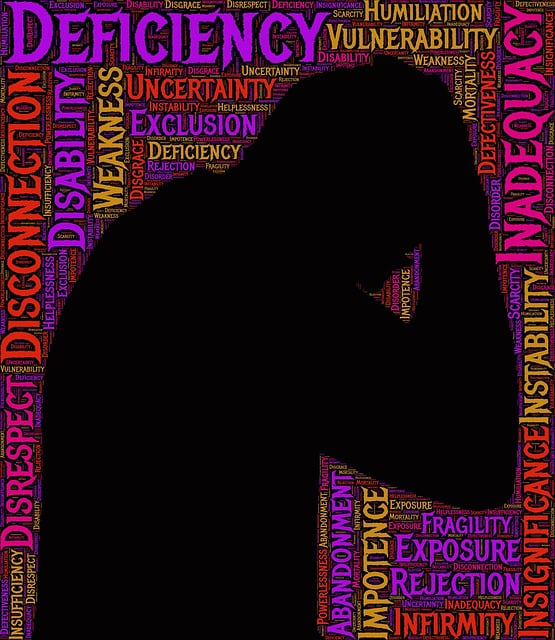Evaluating mental wellness programs for Spanish-speaking adults requires culturally sensitive approaches, including specialized assessment tools and therapists fluent in Spanish. Tailored therapy sessions that incorporate traditional healing methods, family dynamics, and community norms enhance engagement and trust. Inclusive practices like Self-Care Practices, mindfulness meditation, and community outreach improve outcomes and foster positive impacts within these communities (Therapy for Adults Spanish Speaking). Qualified interpreters and validated cultural assessment tools further ensure accurate evaluation and effective crisis intervention guidance, addressing language barriers and sensitive topics related to emotional regulation.
Mental wellness programs serving Spanish-speaking adult populations require specialized evaluation methods to ensure cultural sensitivity and effective treatment. This article explores key strategies for assessing mental health in this diverse demographic, including culturally adapted assessment tools and translation services that overcome language barriers. We delve into evidence-based therapies tailored to Spanish speakers’ cultural and linguistic needs, analyzing success rates through case studies. Additionally, we discuss comprehensive evaluation metrics, integrating quantitative surveys with qualitative insights to measure program impact on mental wellness among this critical population, focusing specifically on therapy for adults speaking Spanish.
- Assessment Tools for Spanish-Speaking Adult Populations
- – Culturally sensitive assessment methods
- – Language barriers and translation services
Assessment Tools for Spanish-Speaking Adult Populations

When evaluating mental wellness programs for Spanish-speaking adult populations, it’s crucial to employ assessment tools that bridge cultural gaps and accurately measure well-being. Many traditional tools may not account for linguistic or cultural nuances, leading to potential bias in results. Therefore, specialized evaluation methods are essential for ensuring the effectiveness of therapy for adults who speak Spanish.
Specific assessment tools tailored for Hispanic adults can help address trauma support services and stress management needs within these communities. For instance, culturally adapted questionnaires can assess mental health status, while qualitative interviews can uncover unique challenges and strengths. Moreover, incorporating public awareness campaigns development in evaluation strategies can enhance participation rates and foster trust between service providers and Spanish-speaking individuals seeking therapy.
– Culturally sensitive assessment methods

In evaluating mental wellness programs, especially those designed for Spanish-speaking adults, culturally sensitive assessment methods are paramount. This involves tailoring therapy sessions to reflect participants’ cultural backgrounds and language preferences, ensuring effective communication and a sense of comfort. For Spanish-speaking individuals, providing therapists who speak their native language or utilizing trained interpreters can significantly enhance engagement and trust in the treatment process.
Culturally sensitive practices extend beyond language; they encompass understanding and incorporating traditional healing methods, family dynamics, and community norms into therapeutic frameworks. This might include integrating Self-Care Practices and Mindfulness Meditation that resonate with participants’ cultural values or leveraging a Community Outreach Program Implementation to address broader social determinants of health. Such inclusive approaches not only improve mental wellness outcomes but also foster lasting positive impacts within these communities.
– Language barriers and translation services

Language barriers present a unique challenge in mental wellness program evaluations, particularly when serving Spanish-speaking adults who require therapy. Accurate communication is essential for effective assessment and treatment planning. One solution involves employing qualified medical interpreters or translation services to facilitate conversations between clients and healthcare providers. These services ensure that cultural nuances are considered and that consent forms, intake questionnaires, and therapy sessions can be conducted fluently in Spanish.
Additionally, utilizing culturally competent evaluation tools that have been validated for use with Hispanic populations can enhance the accuracy of mental health assessments. This may include specialized crisis intervention guidance tailored to address language barriers during times of emotional distress and promote effective communication strategies for building rapport and encouraging open dialogue about sensitive topics related to emotional regulation.
Evaluating mental wellness programs, especially those catering to Spanish-speaking adult populations, requires culturally sensitive tools that overcome language barriers. By utilizing assessment methods tailored to these communities and ensuring access to quality translation services, therapists can effectively target specific needs within this demographic. Implementing such strategies not only enhances the accessibility of therapy for adults speaking Spanish but also fosters more inclusive and effective mental health support.













